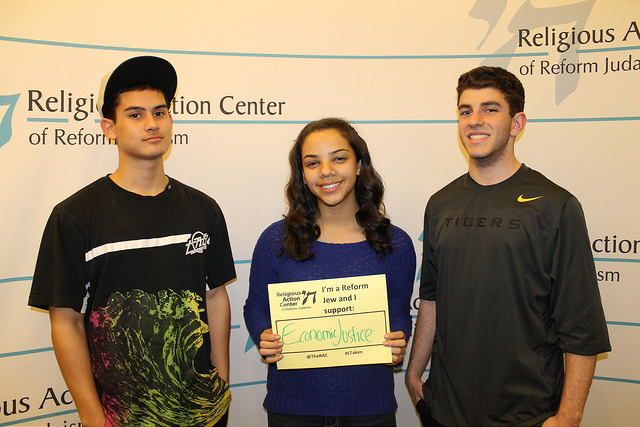
On Tuesday, the United States Census Bureau released their 2015 data, which offers encouraging signs in the battle against poverty in America. But, as much as there has been progress, the Census data also provides a sobering picture of the many challenges still facing millions of Americans.
Americans earned more in 2015, as the median household income rose 5.2 percent; this is particularly exciting news because those in the bottom 10% of the economic ladder saw the sharpest income gains. Meanwhile, the percentage of people in poverty fell to 13.5 percent from 14.8 percent and the percentage of Americans without health insurance decreased by 1.3 percentage points. Last year was the first year since 1999 in which fewer people lived in poverty, the median income rose and the number of uninsured decreased all in one year. This means people are making more money and fewer people are burdened by a lack of health coverage. These increases show the advancement the country has made since the beginning of the recession. Income rates plummeted after the financial crisis of 2007-2009, and Tuesday's data shows progress in economic recovery. However, the median income is still lower than in 1999, showing how much work remains.
The Census report also provides necessary information as Congress is in the process deciding of how to fund the government – after the current budget expires at the end of the month – as these metrics highlight the importance of government assistance programs in lifting people out of poverty. The Economic Policy Institute reports that refundable tax credits, such as the Earned Income Tax Credit (EITC), lifted 9.2 million people out of poverty, while the Supplemental Nutritional Assistance Program (SNAP) kept 4.6 million from poverty. These measures and others are necessary for the most vulnerable populations, including children, the elderly and people with disabilities.
While Tuesday’s numbers are welcome progress, they are far from painting the just world we seek. 8.6 million families still live in poverty, and that is 8.6 million too many. 29 million Americans still live without health insurance, leaving them vulnerable to an unexpected illness or emergency. Millions more would have access to health care if all states expanded Medicaid under the Affordable Care Act. And, vast racial inequalities persist, with almost one-third of black children living in poverty.
Our tradition teaches us to not rest until the needs of our neighbors are fulfilled. Instead, we must “Speak up, judge righteously, champion the poor and the needy” (Proverbs 31:0). Speaking up as a community gives the opportunity for our voices to be amplified, and to become the champions our faith demands.
There are many opportunities to become involved in the work of achieving economic justice. Paid sick days are necessary for a healthy economy and benefit workers and employees alike. Measures like these will help continue the progress that today’s report shows is possible. You can take action here and encourage your Members of Congress to support paid sick days for working families.
Related Posts

Remarks from Rabbi Eliana Fischel at Jewish Gathering for Abortion Access

Teens from North Carolina Speak About Environmental Justice


